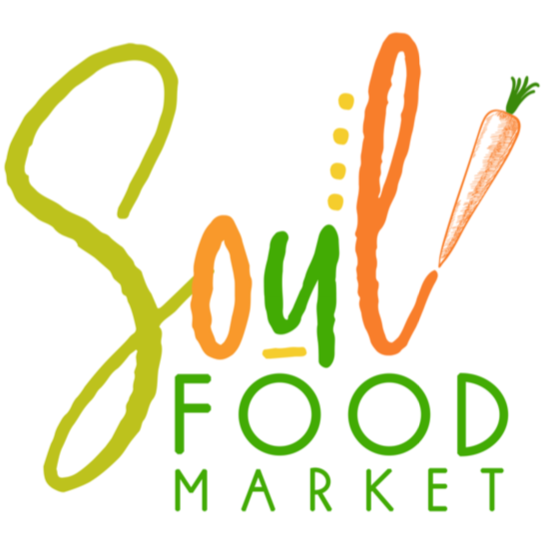Editor’s Note
I recently had the privilege of speaking with We Buy Black founder and CEO, Shareef Abdul-Malik. The topic of our interview was the brand new Soul Food Market. What is the Soul Food Market? It’s revolutionary. It’s necessary. And it’s the most recent product of the Buy Black Movement. Whether you’re a veteran of the Buy Black Movement or just now joining us, this is an article you won’t want to scroll past. Here’s a recap of the conversation between Shareef Abdul-Malik and myself.

We Buy Black Convention 2018
In November of 2018, We Buy Black hosted its first convention. As you can imagine, that was a hectic time for the We Buy Black team, especially for Abdul-Malik. Regardless of juggling his time between vendors, volunteers, and his staff, Abdul-Malik kept the future in mind. He mentioned, “Before we can have the next [We Buy Black] convention, we need a supermarket.” Soul Food Market will provide a physical location for Black vendors to sell their goods. If this idea sounds like a major risk, it is.
The Threat Against Black-Owned Markets
Earlier this year, rapper and activist Killer Mike featured We Buy Black in the first episode of his Netflix original docu-series, Trigger Warning with Killer Mike, along with a myriad of other Black-owned businesses. One of those businesses was a market named Your Supermarket Organic. Since the episode was filmed, Your Supermarket Organic has closed down. Back in 2015, the Black-owned Calhoun Foods grocery store in Montgomery, Alabama closed down as well. There are many reasons for these closures; competition is a major contributor. The unfortunate fact is, Black-owned supermarkets often suffer from larger non-Black-owned markets. Abdul-Malik believes that he may have a solution to ensure sustainability for Soul Food Market.
Backed By A Movement
With the success of We Buy Black, as well as the increased efficacy to buy Black, Soul Food Market is, “Backed by a movement.” Abdul-Malik established We Buy Black in 2015. Since then, the number of supporters has grown substantially. Since Abdul-Malik’s market is supported by We Buy Black followers and the Buy Black Movement as well, he’s certain Soul Food Market will not fail.What is Soul Food Market?
Soul Food Market is a Black-owned market that will be modeled after Whole Foods 365. If you’re familiar with Whole Foods, then you know that they’re extremely proud of their quality standards. They offer carefully-evaluated, organically-grown products “that are free of artificial preservatives, colors, and…” other additives. Soul Food Market will follow similar standards, providing healthy alternatives for the Black community. Since many of the products currently selling on We Buy Black are made organically, it won’t be difficult to provide organic goods to the Black community. Abdul-Malik is currently working with several local (in reference to Atlanta, Georgia) African-owned markets and with Black farmers in Southern states to provide organic grains and Halal meats. Halal (also spelled Hallal or Halaal) refers to what is permissible in traditional Islamic law. Halal is the equivalent to Kosher. Under the Halal law, animals that are slaughtered for consumption are treated in a humane way as opposed to non-Halal, inhumane slaughtering.Is it Necessary?
The first article I wrote for We Buy Black back in November of 2017 outlined a conversation that I had with a colleague. She stated that We Buy Black sounded like reverse racism. I can assure you it’s not. During Jim Crow and before society integrated, it wasn’t uncommon for leaders like Marcus Garvey and Malcolm X to advocate for segregation. Since Black people were not allowed to shop in White-owned establishments, they were forced to provide for themselves. As a result, Black Wall Street bustled. Black Wall Street refers to the myriad of Black-owned businesses that catered to the needs of the Black community. Black Wall Street consisted of grocery stores, clothing stores, restaurants, churches, etc. Members of the Black community thrived. After society desegregated, Black-owned businesses suffered. White-owned businesses allowed Black people to work and shop in their establishments, taking money away from the smaller, Black-owned businesses.
Black Wall Street refers to the myriad of Black-owned businesses that catered to the needs of the Black community. Black Wall Street consisted of grocery stores, clothing stores, restaurants, churches, etc. Members of the Black community thrived. After society desegregated, Black-owned businesses suffered. White-owned businesses allowed Black people to work and shop in their establishments, taking money away from the smaller, Black-owned businesses.
Remove. Replace. Rebuild.
The Buy Black Movement isn’t about toppling non-Black-owned businesses. It’s about leveling the playing field. While the dollar circulates within other communities for days, weeks, and even months, the Black dollar circulates within the Black community for mere minutes. With such poor circulation, the Black community will never be equal to other communities. The We Buy Black motto is: Remove. Replace. Rebuild. By removing non-Black-owned businesses from our economic system, we are then charged with the task of replacing them with a Black-owned business. From there, we can rebuild Black Wall Street and the wealth that we once had.









[…] Webuyblack.com is the largest online marketplace for Black-owned products. In 2019, they launched a crowdfunding campaign for Soul Food Market, a Black-owned supermarket containing organic foods and produce from Black farmers and distributors. An increase in healthier options could help reverse centuries of habits that have compromised Black people’s wellness. […]
[…] Webuyblack.com is the largest online marketplace for Black-owned products. In 2019, they launched a crowdfunding campaign for Soul Food Market, a Black-owned supermarket containing organic foods and produce from Black farmers and distributors. An increase in healthier options could help reverse centuries of habits that have compromised Black people’s wellness. […]